Good morning, readers ☀️
With just a few days now between us and the 97th annual Academy Awards, it’s once again high time for me to fulfill my promise to you all and serve my takes on all ten of this year’s ‘Best Picture’ nominees.
Like last year (and every year I can remember), this year I retain my skepticism around the Academy’s choices and encourage anyone interested in my personal picks for the best from this past year to:
visit my database, where I’ve recorded my personal nominees and picks every year for the past 18 years, and/or
look out for my next serving of “Hot Tea,” wherein (as I did last year) I’ll provide my “Top 10” films of 2024.
All that said, I continue to recognize the broad-reaching power that the Academy and its awards still have over the opinions and memories of the general public regarding film and admit that it’s a power so great, that it’s impossibly hard to write about film each year and not pay them any attention.
So, in my continuing efforts to help you, readers, identify what to watch and why or why not, I give you this digest on the ten nominees for the 2025 Academy Award for ‘Best Picture.’
Films are presented in alphabetical order.
Anora
Rentable • Comedy • Drive, or Be Driven
Synopsis
Attracted to the better life for herself she sees in his eyes, an exotic dancer reluctantly returns the affections of a young wealthy Russian who patronizes her business.
My take
The only 2024 Best Picture nominee to already receive entry into The Criterion Collection, Sean Baker’s songless opera Anora, about a young woman’s direct confrontation with the capitalist’s caste system, is validly one of the better films of 2024. Unpretentious and relatable, Anora sits comfortably alongside:
Casino (Scorcese [dir./wri.] & Pileggi [wri.], 1995),
Goodfellas (Scorcese [dir./wri.] & Pileggi [wri.], 1990),
Erin Brockovich (Soderbergh [dir.] & Grant [wri.], 2000),
Little Miss Sunshine (Dayton, Faris [dir.], & Arndt [wri.], 2006),
Juno (Reitman [dir.] & Cody [wri.], 2007), and
Barbie (Gerwig [dir./wri.] & Baumbach [wri.], 2023; see my original take here)
as similarly nominated, often iconoclastically female-led films about dreams that exceed one’s reality and realities that fall short of one’s dreams.
Hardly a new subject for Baker, whose last film, Red Rocket (Baker [dir./wri.] & Bergoch [wri.], 2021), can be directly read as the male precedent and counterpart to this film, Anora’s confrontation with caste, corruption, and the persistent illusion of the American dream is the film’s major point of interest; and Baker this time chooses to resolve this point unusually, with — spoiler alert — a moment of self-shattering revelation for his heroine, who perhaps for the first time in her life recognizes that no man nor anyone other than she herself can really give her the freedom and the life she most desires and that, consequently, her entire mode of interacting with and benefitting from the governing socio-financial systems she believed were in place is actually, devastatingly misbegotten and wrong. As Criterion puts it, she experiences an “audacious anti–Cinderella story” and must first recognize her role in it before she can even begin to undo its grip on her life.
To this end, Baker’s guileless camera and writing are to her credit; unlike in Red Rocket where the remote disenchantments of his camera and writing left our protagonist foolish and flailing, here that same deliberately neutral and unpretentious camera and pen afford protagonist Ani, played with aplomb by Best Actress BAFTA winner Mikey Madison, the intimacy and the unquestioned vulnerability she must manifest in order to become our companion and narrative lens. These qualities are essential to the narrative’s and the film’s success, because it’s ultimately only through her eyes and her experience, that we can properly emotionally register and understand the drama unfolding before us. By succeeding in this way, more than any ingenue in the past 18 years since Adrienne Shelly’s (2007) titular Waitress, does Madison as Ani update and codify the terribly persistent diffraction of modern womanhood between professional and personal enfranchisement on the one hand and aspirational housewifery and domesticity, born of the hopefully increasingly archaïc pressures to marry well (i.e., marry rich), on the other. It is therefore Madison’s journey as Ani, plus Baker’s commendably effective setting the stage for that journey, that make watching Anora so worthwhile.
Applause then to Madison and Baker, whose collaboration it seems will earn one if not each of the pair a golden statuette at the Academy’s ceremony on Sunday, and to Yura Borisov, whose dully resolute and perfectly mirageous “male savior” performance is the exact support Ani’s lead elementally needs in Baker’s nearly allegorical social ecosystem.
Temperature check
Hot
The Brutalist
Rentable • Drama • Choose
Synopsis
The architectural talents of an Eastern European emigré stoke the passions and the ire of the American lives he touches.
My take
Of all the films nominated for the 2025 Best Picture Oscar, Brady Corbet’s manicured and measured The Brutalist is in my book the most worthy of that award’s title. Featuring:
a “best of the best” leading performance from Adrien Brody;
stunningly structured and layered cinematography, inspired as much by the real architectural work of midcentury American landscape photographers like the Bechers1 (see here) as by the sweeping cinematic views of similar midcentury epics of challenge and bitter conquest in the built environment like Lawrence of Arabia (Lean [dir.], Bolt, & Wilson, 1962) and Playtime (Tati [dir./wri.], Lagrange, & Buchwald, 1967); and
a pulsing, driving musical score that reminds the audience of the relentless spirit of ambition despite opposition that centers this unflinchingly American story,
The Brutalist hits hard across the board of what makes cinema great. More than any other individual quality, however, I praise The Brutalist most for being so beautifully unafraid to risk its moments of sincere connection on other moments of sharp disconnection for the audience and to present both types of moment with equal honesty. Taking no shortcuts, employing no tricks, and resting on nothing but its own starkly carved foundations, the film possesses, ultimately, a deliberate frankness, so well embodied by its direction, its camerawork, and its narrative itself, that for me the film floats distinctly and undeniably just above all the other good films on this list.
So, despite somewhat unexpected losses at the Producers’ Guild of America Awards and the Directors’ Guild of America Awards this year (losses, notably, to Anora; see my take above), I still think, especially with major wins at the British Academy of Film and Television Arts (BAFTA) Awards and the Golden Globe Awards, The Brutalist still has a fighting chance to actually take home this year’s Best Picture Oscar. Go see it on the largest, clearest screen you can find.
Temperature check
Hot
A Complete Unknown
Rentable • Biopic • Taking What We Can
Synopsis
The desire to be heard overrules the connections a young bard might otherwise have made with peers, lovers, mentors, and — above all — his audience.
My take
Albeit somewhat rote, James Mangold’s paean to the perpetual mystery that is the still living performer Bob Dylan is still very fine film-going, all things considered. Were it not for Adrien Brody’s “best of the best” performance in Corbet’s The Brutalist (see my take above), Timothée Chalamet’s pensive and private leading performance here would certainly be the one to finally earn him all his frankly already overdue official accolades for acting in the motion pictures; and, in my book at least, even with all the available competition from Zoë Saldaña, Ariana Grande, and the other women in the Supporting Actress category at the Oscars this year, Mónica Barbaro still comes out on top for her compellingly simple and poetic performance here as Chalamet’s Dylan’s initial desire, recurrent partner, recalcitrant foil, and eventual regret Joan Baez.2
If there’s anything for me to honestly critique about A Complete Unknown, it’s simply that a screenplay that prioritizes such juicy interactions for its actors necessarily trades off its own narrative coherence in order to achieve that interesting fragmentation of focus across its three central performances. Consequently, especially when the leading performance is of a character that by design remains essentially elusive and unknowable, this trade-off against narrative direction sacrifices an overall thematic coherence on the altar of a compelling cast; and, while I can ultimately respect the directorial choice to gamble everything on one’s actors, that the choice was so much of a gamble here rests on the shoulders of the screenwriters, whose own choices upstream of the direction of the film precommitted the final product to being less a peer of A Streetcar Named Desire (Kazan [dir.], Williams, & Saul [wri.], 1951), a famously “all time great” acting-led film, than a peer of Doubt (Shanley, 2008), a merely solid acting-led film by comparison.
So, the best recommendation I can think to give you here, readers, is to see A Complete Unknown, which does rank second on this list in my book, but to expect nothing more than (solid sound work and) a set of interesting, applause-worthy, well-costumed performances.
Temperature check
Hot
Conclave
Peacock • Drama • In Summam Spontem
Synopsis
Disquietude among the college of cardinals foments crimes of advantage and disadvantage in an underhanded game for St. Peter’s chair.
My take
After the bleak blue-tinged success of his All Quiet on the Western Front (Berger [dir./wri.], Paterson, & Stokell [wri.], 2022; see my original take here), Edward Berger found international audiences outside his native Germany hungry for more of his incisive political commentary. What next project or topic would he chose, we wondered, and would it continue All Quiet’s lauded splashing of flippant dismissiveness across the faces of those vanishingly few in power?
With Conclave, the answer appeared to be yes; in the fraught internal politics of the papal election, wherein ~140 willful men determine the spiritual leader of the estimated 1.2 billion Roman Catholics in the world, Berger seemed to find ample amperage to electrify a new investigation of:
the strictures that the powerful wince to feel while wrestling their few true peers for a seat of unsupervised (and, here, literally divine) dominance;
the internal conflict that some of those powerful may feel with that violent individual ambition toward dominance in light of their prescribed and expected humility;
the latent and disappointingly common sense of entitlement most, regardless of ethical intent, have naturally come to feel after years of conspicuous inveteration and due subservience to another dominant figure;
partisanship in general and, especially in situations of resistance toward “infectious” change, partisanship’s necessary but dismaying call for compromise and coälition;
gender dynamics and an institutional legacy of misogyny;
the borderline between inviolable individual privacy and consequential matters of state; and,
of course, the voiceless and nearly entirely absent population of powerless people in the billions over whom all the above issues reign.
Considering that accurate and I think complete itemization of the film’s many substantive themes, I myself was hungry for the film and hoped it would add to Berger’s growing legacy.
Unfortunately, for my appetites at least, Conclave in practice is not quite the film I’d hoped it would be. While all the requisite ingredients may have been in the kitchen, the chef this time was not successful enough at executing his craft — at least not vividly enough to serve his audience an unmissable meal. Drama passes procedurally, amidst only a weak tension about the increasingly predictable crossroads the protagonist and his fellow cardinals find themselves tasked to direct. What little surprise those crossroads’ destinations hold for the audience is entirely dependent on what is essentially a deus ex machina twist that only partially fulfills the expectations set by the narrative’s prior events and themes. Only just shy of implausible, the ending the film then chooses appears to abandon all the film’s actually meaty questions about ambition and entitlement — especially in halls allegedly devoted to charity — for the sake of a capstone revelation that, in its best light, would merely stun its audience into submission rather than authentically earn its respect. Honestly, I can’t seriously commend the bones of the film more than admit that, in this relatively weak year for film, its adapted screenplay is enough to earn a nomination in its category.
So, sure, while Conclave certainly appeared to have all the signature qualities of a respectable and awards-worthy film, in reality that appearance, like the visage of pure humility, curiosity, and faith its characters one by one cast off, turned out to be just a façade, readily identifiable by anyone who spares more than a passing glance at its action.
Temperature check
Tepid (what would be a solid made-for-tv movie)
Dune: Part Two
Max / Netflix • Drama • Manifesting Destiny
Synopsis
Control and its imminent seizure force the current and aspirant leaders of crossed factions to each decide how hard to push in order to be on top.
My take
By far the less remarkable of the two Timothée Chalamet-led films on this list, Denis Villeneuve’s stylized, dystopian-industrial sequel to his Dune (Villeneuve [dir./wri.], Spaihts, & Roth [wri.], 2021; see my original take here) is only half the full fantasy I think we all had hoped it would be. Mired in the surplus of plot points it committed itself to covering, Dune: Part Two finds its greatest successes in the few moments when it’s able to escape its rather predictable narrative structure. Thanks in large part to his performance, nearly all of these moments are Austin Butler’s: the stark polarity of his character’s arena scene, the rhythmic sway of his seduction scene, the aggressive conviction of his deliberate ascension (see the image above), and the wild fury of his final fight scene, wherein his commitment to the reality of his character peaked as, unlike Chalamet who evidently swung to follow the choreography, Butler swung palpably to kill. That rich embodiment of his character made the fight all the more exciting and elevated what otherwise would have been a perfunctory nemesis throughout his screen time into a three-dimensional, living opponent.
Other than Butler, Javier Bardem is the only actor whose work stands out in this film. His own unwavering commitment to his role as stolid guide turned quivering acolyte seems fascinatingly to surprise even his own character, when his deep and honest faith springs authentically from within even his hardened and gruff exterior. Suddenly verbose and open where he was previously taciturn and closed, Bardem perhaps even more sophisticatedly than Butler confidently rounds a character that could have otherwise easily faded into the background in a film replete with supporting parts that pull hard on the protagonist’s strings.
Perhaps if Chalamet’s own performance had approached the lived-in, fully realized levels these two supporting performances had, we’d be starting from an overall different appraisal of this film; but, left short as it is, Chalamet’s work stunts the overall impression of the piece and leaves us emotionally uncertain in places where we’d want to be earnestly shaken. Costumes, effects, and sound editing aside (which all are qualities this film does possess), Dune: Part Two is just the humdrum sci-fi epic anyone reared on Star Wars (Lucas [creator], 1977-present), Game of Thrones (Benioff & Weiss [creators], 2011-2019), and/or The Lion King (Allers, Minkoff [dir.], Mecchi, Roberts, & Woolverton [wri.], 1995) in our culture could not only recognize but also predict, even without the benefit of having read any of Frank Herbert’s originating (1963-1985) books.
So, my take, readers, is that, unless you’re here purely for the spectacle, it’s completely OK to skip spending the time on this nominee.
Temperature check
Tepid (just barely)
Emilia Pérez
Netflix • Musical • Vidas Dobles
This review is a reproduction of the original, published in the 37th serving of Hot Tea on 5 January 2025. It’s reprinted here in its entirety, to represent this film in the Best Picture slate.
Synopsis
A Mexican crime boss entangles an altruistic lawyer into an extensive plan to reformat her life.
My take
A gripping central performance from Spanish telenovela star Karla Sofía Gascón redeems this otherwise mediocre new musical from French director (and one-time Rich Pick nominee) Jacques Audiard3. Despite sharing the Best Actress award at Cannes earlier this year with her co-stars in the film, Zoë Saldaña and Selena Gómez, only Gascón truly impresses. (Saldaña suffices, and Gómez gives no more than she regularly gives come each new season of Only Murders in the Building [Martin & Hoffman (creators), 2021-present; see my take on the most recent season here]). Gascón’s gravitas, deploying cunning and compassion with an unsettling unpredictability across her role’s demanding arch, makes this film’s otherwise rather rambunctious and melodramatic narrative earnest and anchored. That the actress may uniquely have also been able to bring her lived experience to bear on the performance is just a bonus, benefitting her audience with the fire of authenticity on the journey.
Otherwise, musically and cinematographically, Emilia Pérez is kind of a mess. Stunted, unmotivated ensemble performances, meant to whip the audience into the characters’ passions, feel more like disordered flash mobs to which the audience is needlessly and confoundingly subjected; and the mournful, introspective ballads, meant to stir the audience’s empathy for the characters’ plights, feel more like isolating asides, separating rather than uniting the audience and the characters in emotional space. And, when on top of everything else the music itself isn’t very compelling, relying partially on stunted staccato Lin-Manuel-Miranda-derivative beats for mottled emphasis and fully on lyrics that, like Miranda’s worst work, simply dictate a history rather than explicate a situation, then there is little to cling to in admiration anywhere. Perhaps then it will merely be because of the film’s unexpected conceptual audacity alone, that it already has begun to and likely will continue to feature in many nomination lists this season in film…
Whatever its external fortunes, here for our conversation, readers, Emilia Pérez is really for only those interested in its themes (i.e., music, dancing, trans identities, ambition, Latin America, and criminal justice) and no one else.
Temperature check
Cold
I’m Still Here
In Theaters • Drama • Devotion and Accountability
Synopsis
The unexpected abduction of her husband, a former democratic congressman, on suspicion of his counter-insurgency against the reigning military dictatorship permanently changes the life of a Brazilian housewife and mother.
My take
The least predicted nominee for this year’s Best Picture Oscar, Walter Salles’ sobering I’m Still Here is the only earnest historical drama on this list. Wistful and contemplative, the film concentrates its energy on extrusive meditations on the ever fleeting present, the fragile ephemerality of times of peace and togetherness, and the permanence of loss and of impressions of injustice on a family and a society. Dark but ultimately optimistic, the narrative uses the cruelties of Brazil’s former military dictatorship as catalysts not just to document the progressive strides the broader sociopolitical context of Brazil has taken since the dictatorship’s most aggressive nadir before its eventual fall back to democracy in the mid 1980s, but also to more generally explore and reïnforce the idea that it is individual, personal perseverance and dedication to values like truth, freedom, and justice that can and will uphold our most precious social structures (i.e., our families, our homes, our countries) and should be at least remembered, if not honored, more widely than it currently is for doing so.
Cinematically strongest in its careful balance of tone and pacing across the narrative highs and lows that compose its central story — including in the balance carefully performed by the clear talents of its leading actress, current Best Actress nominee Fernanda Torres, whose own mother (coïncidentally the first Brazilian actress to be nominated for the Best Actress Oscar for her work in Salles’ own Central Station; Salles [dir.], Carneiro, & Bernstein [wri.], 1998) delightfully surprises in this film’s coda as the older version of Torres’ determined protagonist — I’m Still Here is the realist’s antidote to the escapist’s delights otherwise on this list (see especially Wicked below) and, if nothing else, becomes for its basis on a true story the identifiable and articulate history lesson on one chapter in our recent past we, its global audience, didn’t know we needed.
Temperature check
Hot (just barely)
Nickel Boys
Rentable • Drama • Mirrors to Reflect, Mirrors to Deflect
Synopsis
An accidental complicity with a crime redirects the once promising life of a Black teenager in 1962’s Tallahassee, Florida into the cloakedly abusive rule of a segregated reform school.
My take
It’s instantly apparent from the first frames of RaMell Ross (dir./wri.) & Joslyn Barnes’ (wri.) dreamily somber Nickel Boys, that the deliberate perspective the work takes is not only unique but also strong. Filmed unusually from the first-person point of view, Nickel Boys immediately invites the viewer to not just passively sympathize with but moreover actively empathize with, through that visual cohabitation, the central characters in its story; we the audience aren’t mere bystanders to the central action of the plot but, instead, are participants in that action, participants who witness and coëxperience the private and public moments the characters share, from the warm restorative hugs to the devastating literal abuses the narrative necessarily entails. With our additional knowledge that those moments are drawn from real tragedies at the reform school on which the fictional reform school here is based, we are asked, if not pushed, to grapple through confrontation with the essential truths of a systematic injustice that grew from and coproduced the persistent disenfranchisement of especially Southern Black Americans we can depressingly still recognize today. While in my opinion this type of confrontation was more eloquently and impressively founded this year in Washington (dir./wri.) & Williams (wri.; 2024) The Piano Lesson (see my take here), RaMell Ross through especially the performance he directed from supporting actress Aunjanue Ellis-Taylor exhibits a profound and unmatched sensitivity in his storytelling that, I believe, is what earned this film its place on this list.
Temperature check
Tepid
The Substance
Mubi • Horror • Façade
This review is a reproduction of the original, published in the 37th serving of Hot Tea on 5 January 2025. It’s reprinted here in its entirety, to represent this film in the Best Picture slate.
Synopsis
The chance to recover the sparkle of her youth drives an aging actress and fitness model to adopt an unorthodox treatment that quickly costs more than she anticipated.
My take
For its first hour, Coralie Fargeat’s (2024) The Substance was by far the best film I had seen all year. With a premise and initial follow-through more solid than its fitness models’ formidably sculpted six-pack abs, the film genuinely excited me. It’d been nearly a full year since any film had proposed to take me for such an ambitious, dense, and thought-provoking ride, no less simultaneously had actively demonstrated the potential to actually deliver on that proposal. I sat quite literally on the edge of my seat in the theater in early November and waited ready for more. How would this elevated glamour fable conclude?
Sadly, readers, by the time I left that theater, my exuberance had died way down. Choosing to invest all its creativity into the manifestation of its body horror conceit, The Substance struggles to find a successful resolution to the many profound questions it asks so confidently in its opening sections. Is the make-up still immensely impressive? Yes; yes, it is. But, as the central characters in this film can no doubt tell you by its conclusion, substance cannot depend on good looks alone. Without spoiling the plot too much for you, readers, what I can say here is that it’s not that I wanted The Substance to end in any particular way, but instead that the questions it itself posed the audience — i.e.,
how can any individual reconcile the years it takes to truly succeed in an industry premised on a specifically youthful beauty with the aging passage of time those years necessarily entail?
is it morally permissible to even entertain existing within the rules of such an industry, or is continuing within its confines tantamount to self-abuse and self-destruction?
as aging individuals who recognize the ills of the business and its effects on ourselves, are we at all allowed to look fondly back onto our younger accomplishments with the pride of self-recognition or will those now remote moments forever to us be foreign versions of ourselves we once failed to fully appreciate while we were focussed on accomplishments elsewhere?
what is “my best self”?
in what domains is it ever important to measure how “gracefully” anyone ages?
— required a diligence and depth that the film didn’t ultimately seem prepared to provide. Lost in the superficial details of the plot points it’d contrived, the film fumbles its attempts at generating meaningful and equivalently powerful answers to its own deeper questions. A final ‘red-washing,’ if you’ll allow me to coin the term, only accomplishes as much as any thick coat of paint on its own mends any unfinished structure: Sure, the final product stands out, but does anyone actually want to live there?
And it’s really quite a shame, because the faltering of the film’s foundation over time undermines the early excellence of many of its key contributors. Demi Moore would have confidently been in contention to win the end-of-year ‘Actress in a Leading Role’ awards, had the trajectory of the film not tended toward shock so blindly; and Benjamin Kračun’s ardently confrontational cinematography too could have handily competed with any other moving imagery this year, had the purview of his subjects not effectively been taken away from him by the exigencies of the story.1
Ultimately, because I am consciously deciding to be more glad for the shining moments this film did have than sad about the shining resolutions it could have had and because even just asking its central questions in its own particular fashion does add to our culture beyond the ways similarly themed films and other media already have added in the past (e.g.,
Death Becomes Her [Zemeckis (dir.), Donovan, & Koepp (wri.), 1992],
Strange Case of Dr. Jekyll and Mr. Hyde [Stevenson, 1886],
Hocus Pocus [Ortega (dir.), Garris, & Cuthbert (wri.), 1993],
Brazil [Gilliam (dir./wri.), Stoppard, & McKeown (wri.), 1985],
All about Eve [Mankiewicz, 1950],
The Comeback [Kudrow & King (creators), 2005 & 2014],
Being Julia [Szabó (dir.) & Harwood (wri.), 2004],
The First Wives Club [Wilson (dir.) & Harling (wri.), 1996],
Snow White and the Seven Dwarfs [Hand et al., 1937],
The Picture of Dorian Gray [Wilde, 1890],
Boogie Nights [Anderson (dir.), 1997]
), I am going to recommend this film to you, readers, with the crucial and fair warning that anyone inclined to squeal around deliberately unshy bodily ‘features’ may find it difficult to not look away from this ‘as labelled’ modern-Gothic horrorshow of a pretty fable.
Temperature check
Hot (but sweatily so)
Wicked: Part I
Rentable • Musical • Melting
Synopsis
An uncharacteristically colored girl with a unique talent for magic transfixes and transforms the conformity-obsessed world around her.
My take
By far the worst film on this list, Jon Chu (dir.), Winnie Holzman, and Dana Fox’ (wri.) Wicked: Part I is the aesthetically ebullient but narratively prosaic adaptation of Holzman and Stephen Schwartz’ (2003) celebrated stage musical emotionally redeeming Frank L. Baum’s (1900) otherwise notorious Witch of the West, a complicated “villain” that looms large in our cultural memory thanks primarily to Margaret Hamilton’s indelible magnetism in Fleming (dir.), Langley, Ryerson, and Woolf’s (wri.; 1939) technicolor classic The Wizard of Oz. Absolutely squandering the promise of this brilliant premise, Wicked: Part I has perhaps the worst cinematography of any major studio production in recent memory — a stumble that irrevocably forfeits the vast majority of emotional and dramatic potential the contents of the film might otherwise have had. Dance sequences are left obscured, if not outright cropped out of frame; faces are left in shadow, while ultimately trivial components of a scene draw the eye in lighting and centrality (see the image above, for example); and, thanks to additional complications via the film’s edit (which I suspect was meant to cover up asynchronies between the final vocal recordings and the on-set performances the film chose to use), the audience is left to look at the backs of heads instead of the central characters’ expressive faces during more than just a few spare moments in nearly each of the film’s many crucial songs.
Perhaps, if the performances we received in the film (from people who are otherwise genuinely talented performers) were more visually identifiable embodiments of the emotion the musical’s songs and story were designed to cultivate, I’d be able to look past the film’s cinematographic and editorial fumbles and see ultimately redemptive qualities in the overall adaptation; but, alas, even Cynthia Erivo especially seems to be set at only ~20% of the intended emotional register for the vast majority of her leading performance, save perhaps just her character’s final culminating and most recognizable notes.3 While Ariana Grande’s supporting work as G(a)linda is more satisfactory across the board, only Jonathan Bailey’s (along with perhaps Jeff Goldblum’s) work in this film truly delivers on the premise and the promise of the on-page character in voice, in face, and in body in every scene. Seriously, other than Bowen Yang’s relievingly sharp and comedic injections into the runtime, it’s only Bailey’s extended “Dancing through Life” sequence that somehow transcends (escapes?) the oppressively poor camerawork and editing and grants the film anything worth seeing in motion.
The only other sincere compliments I can honestly give the film are for (1) its sets, costumes, and make-up and hairstyling and (2) its musical orchestrations (by two-time Tony Award winner Stephen Oremus). All of these features clearly made good use of the film’s $150 million budget and significantly upgraded the relatively sparse original look and sound of the 2003 stage musical with the fuller, more vivid additions of elaborated designs and instruments not practically possible within the constraints of a live performance. While like those visual dressings by the film’s cinematography those brilliant orchestrations were nearly ruined by the film’s unbalanced sound mixing (which struggles to cleanly meld instrumentals with vocals), it’s almost exclusively for these two aspects of the film alone — namely, (1) the visual dressings of the world in sets, costumes, and make-up and hair and (2) the instrumental orchestrations of the score — that I retain any level of interest and anticipation for Wicked: For Good (Chu [dir.], Holzman, & Fox [wri.], 2025), due later this calendar year. (The only other reason? My morbid curiosity about how the filmmakers and the studio plan on pleasing an upbeat-seeking audience with an entire feature-length production committed exclusively to a much darker and more somber series of songs…)
Temperature check
Cold
The Bechers are German photographers, but did work in the U.S. where they covered the industrial landscape in Brutalist-resonant states like Pennsylvania, Michigan, and New Jersey in their signature style.
I’d say the same about Ed Norton’s performance, were it not for the category fraud of Kieran Culkin’s undeniably strong leading performance in A Real Pain (Eisenberg, 2024).
And it doesn’t help that Erivo’s fundamental readings of Schwartz’ music are less true to their spirit than Idina Menzel’s, who originated the role and helped make its original Broadway cast recording the theatrical canon it now is.




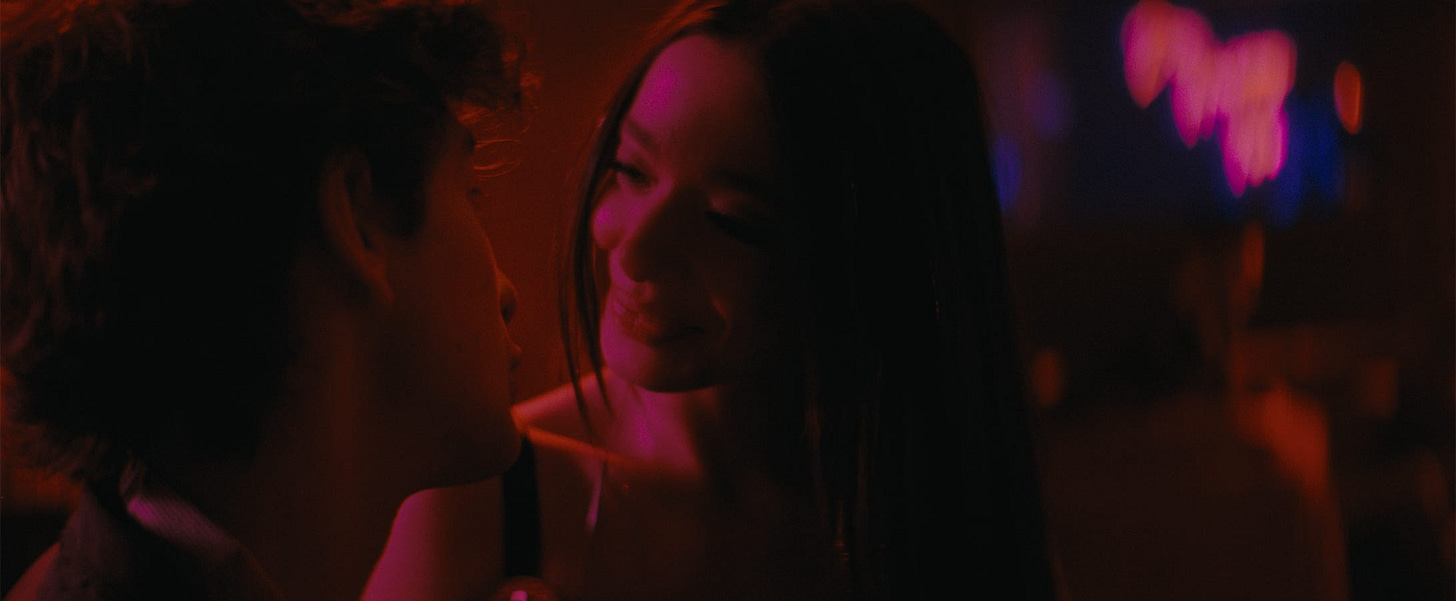
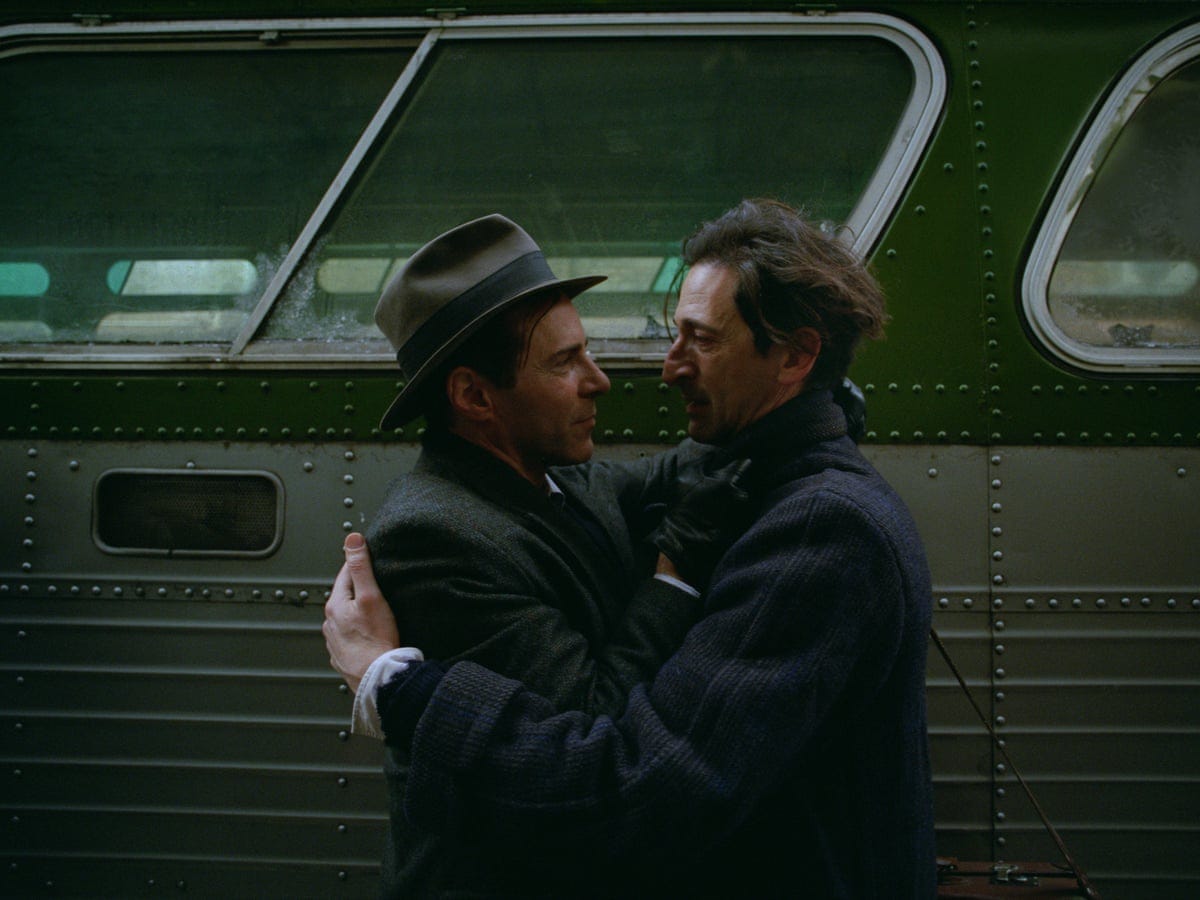


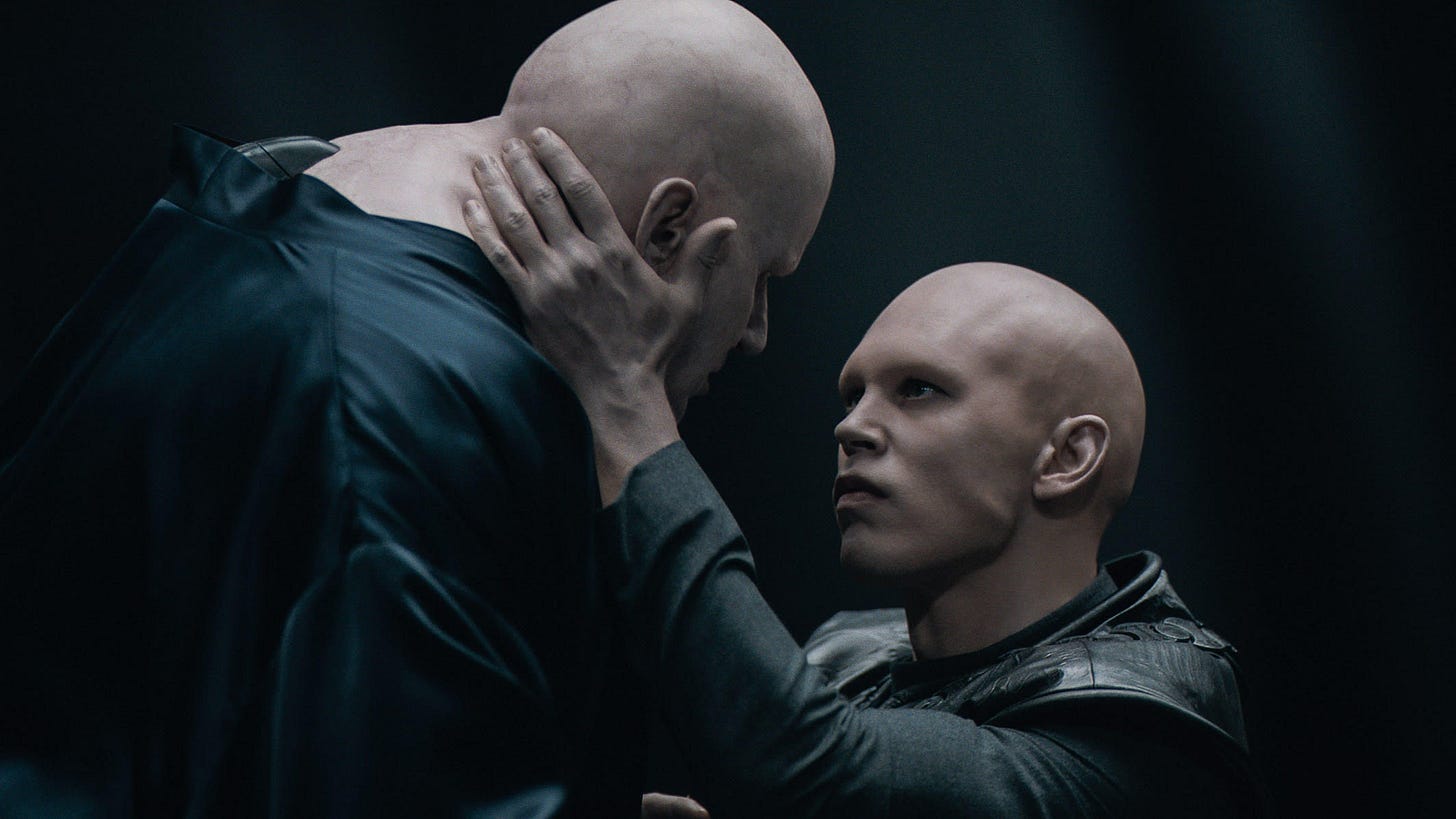

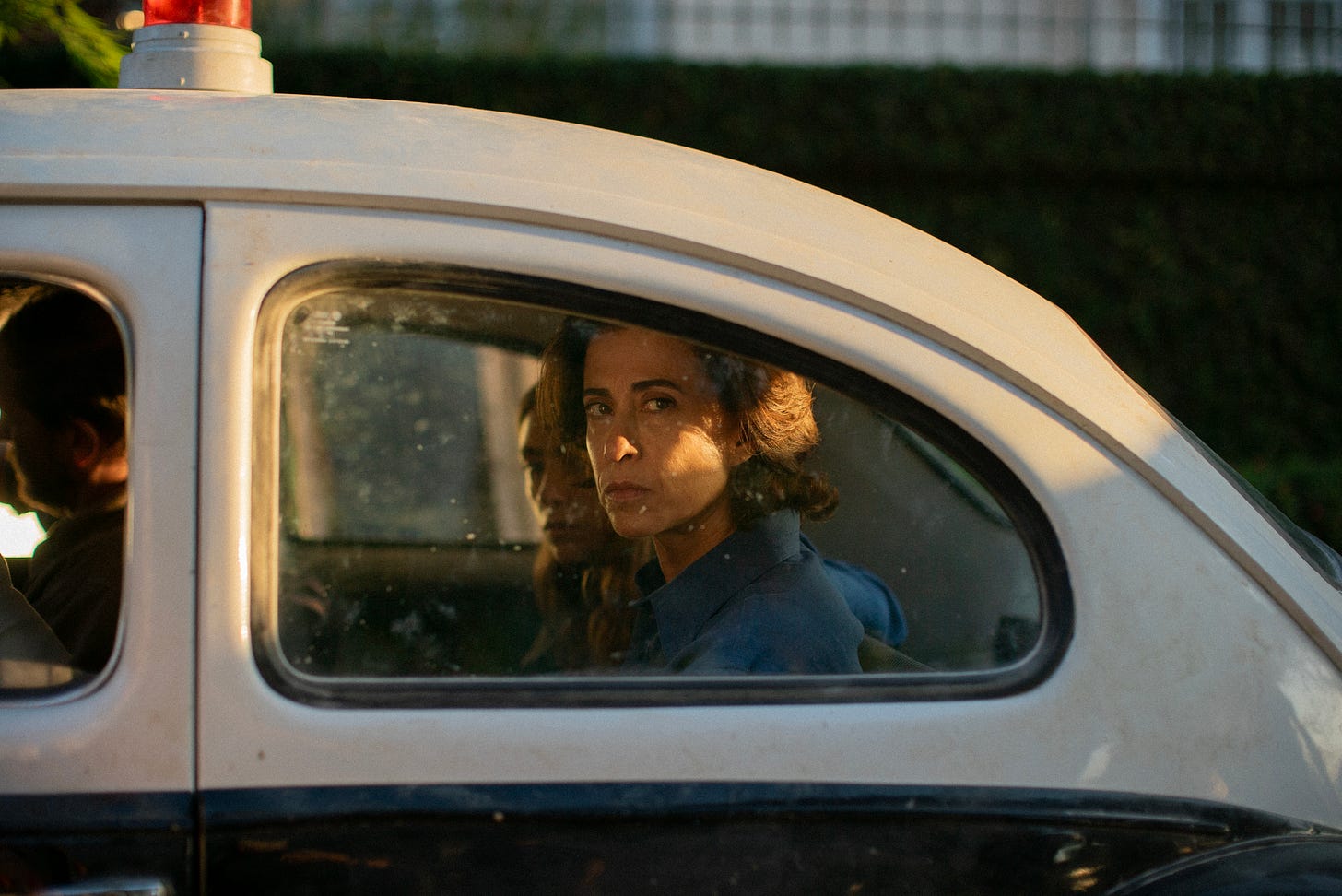
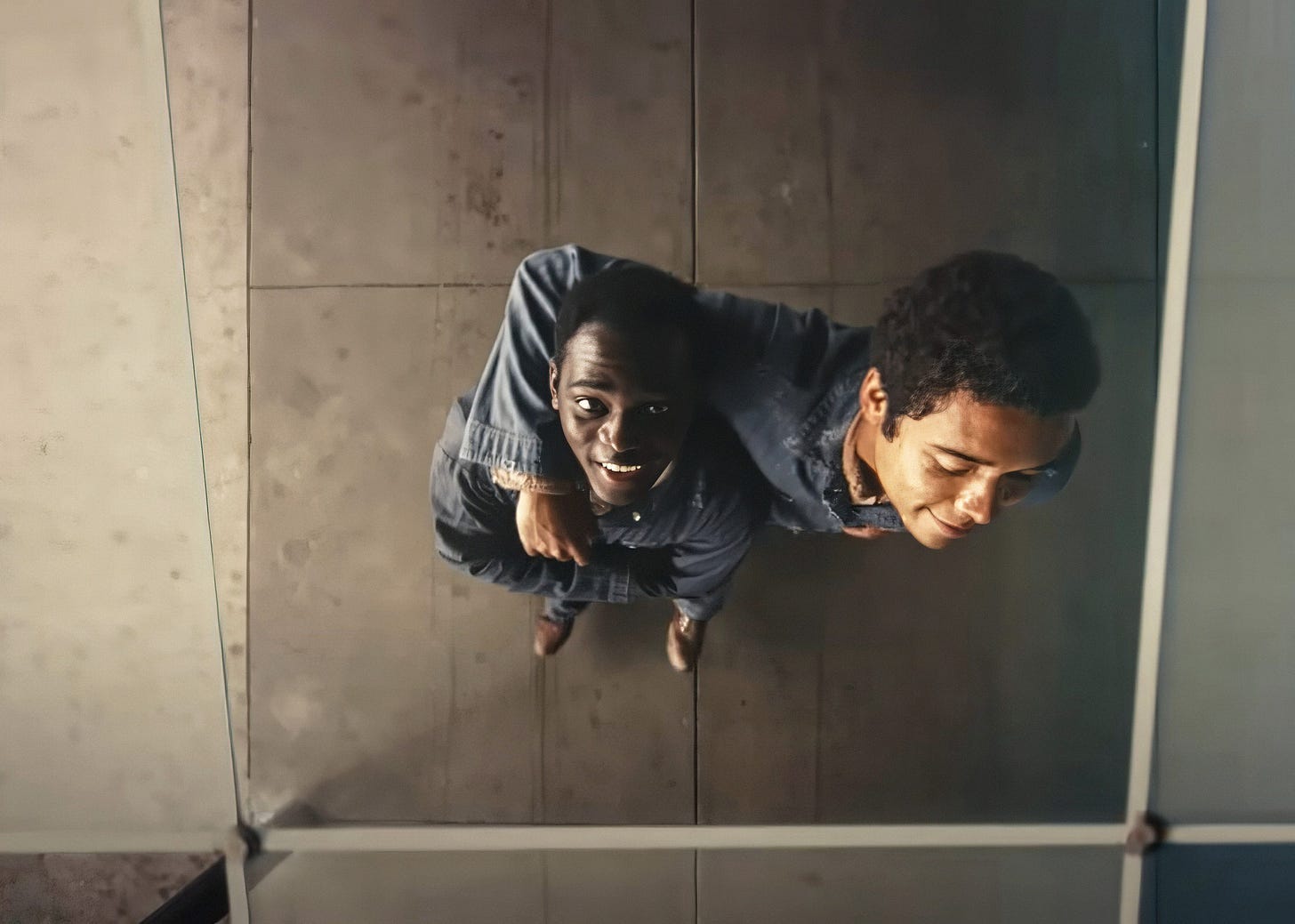

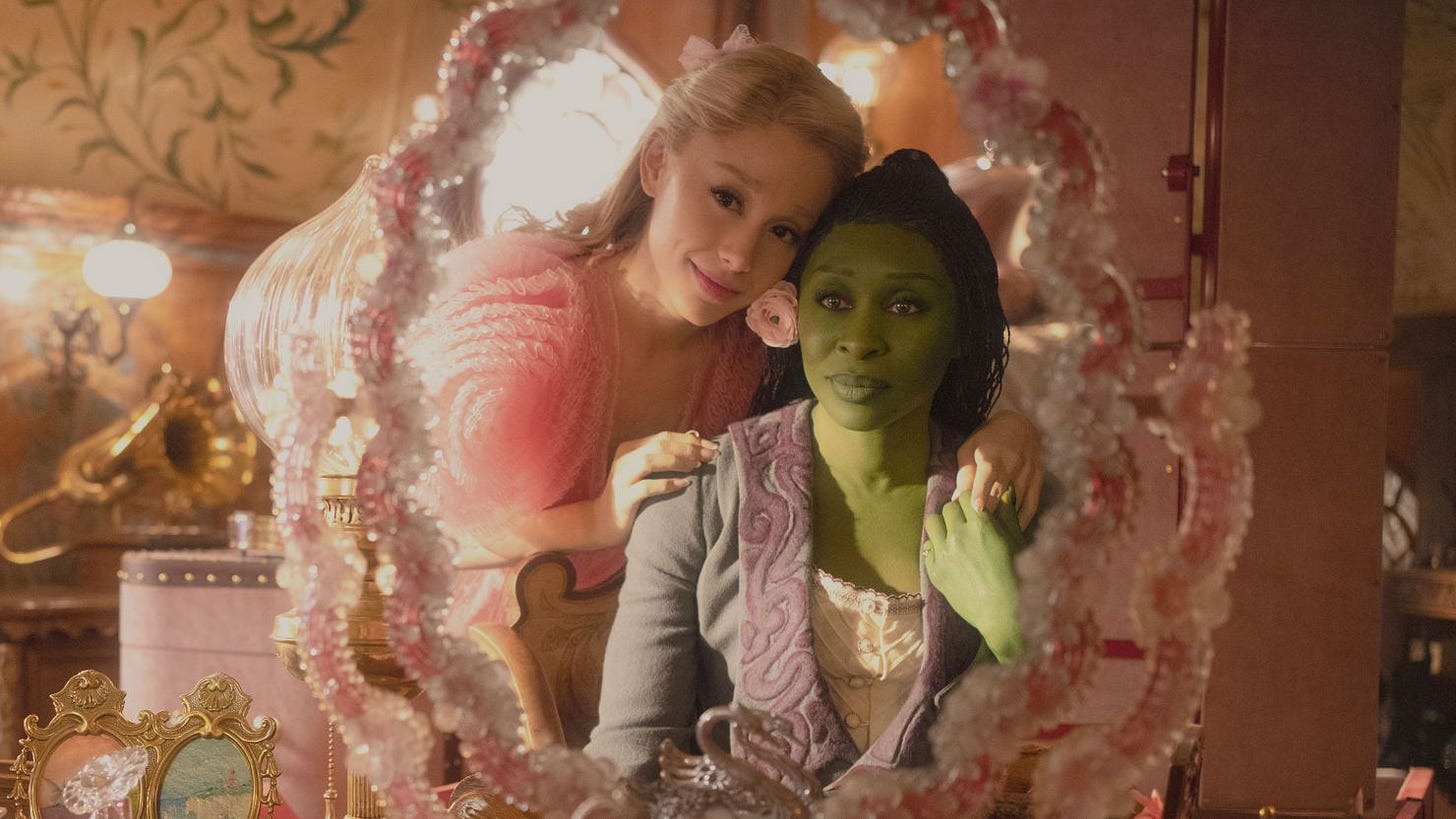
What a great Hot Tea! 🍵 Love a list with a lot of Hots 🥵 lol to Wicked, my friend literally fell asleep in the movie theatre 90 minutes in 🎭